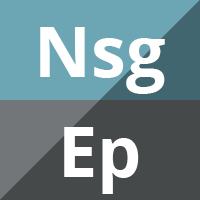
Propofol versus thiopental sodium for the treatment of refractory status epilepticus
Abstract Background This is an updated version of the original Cochrane review published in Issue 8, 2012. Failure to respond to antiepileptic drugs in patients with uncontrolled seizure activity such as refractory status epilepticus (RSE) has led to the use of anaesthetic drugs. Coma is induced with anaesthetic drugs to achieve complete control of seizure […]

Early versus late antiepileptic drug withdrawal for people with epilepsy in remission
Abstract Background Epilepsy is a chronic neurological disorder which affects millions of people around the world. Antiepileptic drugs (AED) are the main interventions used to prevent seizures and control epilepsy. Although effective in most cases, AEDs are related to long-term adverse effects, such as cognitive and behavioural alterations. Thus when epilepsy is in remission, it […]

Clobazam monotherapy for partial-onset or generalized-onset seizures
Abstract Background There is a need to expand monotherapy options available to a clinician for the treatment of new partial-onset or generalized-onset seizures. A Cochrane systematic review for clobazam monotherapy is expected to define its place in the treatment of new-onset or untreated seizures and highlight gaps in evidence. Objectives To evaluate the efficacy, effectiveness, […]

Anticonvulsant therapy for status epilepticus
Abstract Background Status epilepticus is a medical emergency associated with significant mortality and morbidity that requires immediate and effective treatment. Objectives (1) To determine whether a particular anticonvulsant is more effective or safer to use in status epilepticus compared to another and compared to placebo. (2) To delineate reasons for disagreement in the literature regarding […]

Comparison of antiepileptic drugs, no treatment, or placebo for children with benign epilepsy with centro temporal spikes
Abstract Abstract Background Benign Epilepsy with Centro Temporal Spikes (BECTS) is a common epilepsy syndrome with onset in childhood which almost always remits by adolescence. It is characterised by focal seizures associated with motor signs and somatosensory symptoms, at times progressing to become generalised. The characteristic interictal EEG shows normal background activity with centrotemporal spikes […]

Cannabinoids for epilepsy
Abstract Background Marijuana appears to have anti-epileptic effects in animals. It is not currently known if it is effective in patients with epilepsy. Some states in the United States of America have explicitly approved its use for epilepsy. Objectives To assess the efficacy and safety of cannabinoids when used as monotherapy or add-on treatment for […]

Immunomodulatory interventions for focal epilepsy syndromes
Abstract Background Epilepsy is a common neurological disorder made particularly disabling in the 30% of patients who do not achieve freedom from seizures despite multiple trials of antiepileptic drugs (AEDs). Experimental and clinical evidence supports a role for inflammatory pathway activation in the pathogenesis of epilepsy which, if effectively targeted by immunomodulatory interventions, highlights a […]

Treatment of infantile spasms
Abstract Background Infantile spasms (West’s Syndrome) is a syndrome that includes a peculiar type of epileptic seizure—the spasms—and an electroencephalographic (EEG) abnormality often called hypsarrhythmia. Psychomotor retardation is frequently found at follow-up. Approximately two-thirds of affected infants will have a detectable underlying neurological abnormality, but still little is known about the pathophysiological basis for infantile […]

Antiepileptic drugs for the primary and secondary prevention of seizures after subarachnoid haemorrhage
Abstract Background Subarachnoid haemorrhage may result in seizures both acutely and in the longer term. The use of antiepileptic drugs (AEDs) in the primary and secondary prevention of seizures after subarachnoid haemorrhage is uncertain, and there is currently no consensus on treatment. Objectives To assess the effects of AEDs for the primary and secondary prevention […]

Oxcarbazepine versus phenytoin monotherapy for epilepsy
Abstract Background This is an updated version of the original Cochrane review published in The Cochrane Library 2006, Issue 2. Worldwide, phenytoin is a commonly used antiepileptic drug. For the newer drugs such as oxcarbazepine, it is important to know how they compare with standard treatments. Objectives To review the best evidence comparing oxcarbazepine and […]

